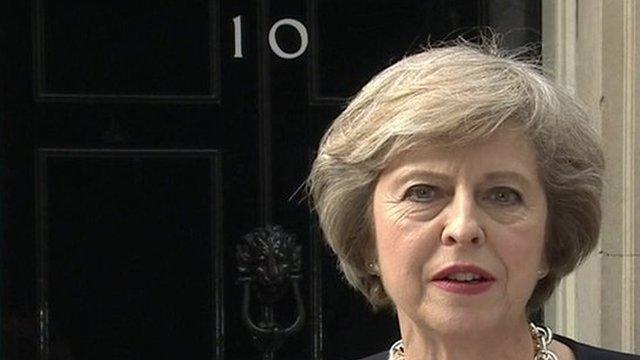Theresa May chairs cabinet committee on economy
- Published
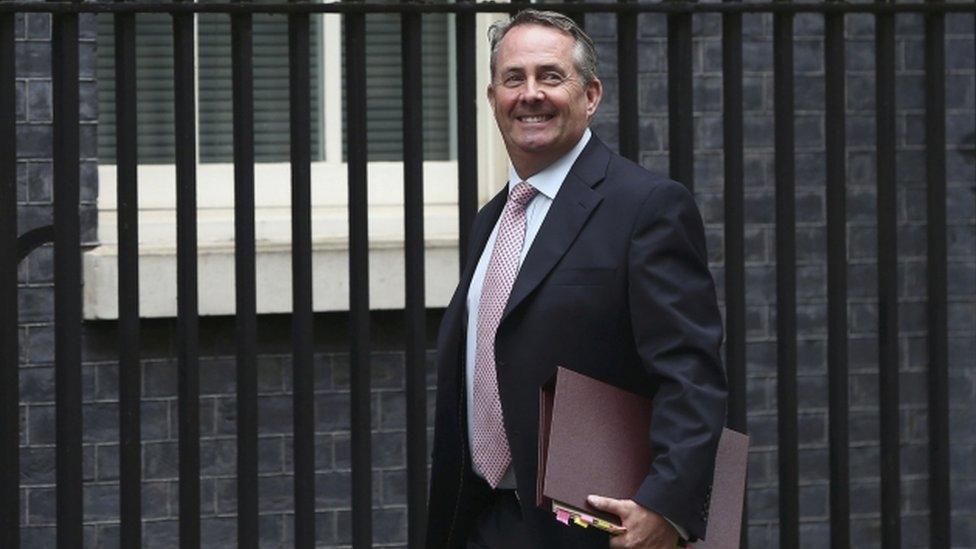
International Trade Secretary Liam Fox is one of the 11 secretaries of state on the committee
Prime Minister Theresa May has chaired the first meeting of a new cabinet committee focused on building an economy "that works for everyone".
Its will look at developing a "strong" industrial strategy, encouraging innovation, boosting productivity and creating opportunities for the young.
Mrs May said that to take advantage of "opportunities" presented by Brexit "we need to have our whole economy firing".
The committee is made up of almost half of Mrs May's cabinet.
It includes Chancellor Philip Hammond, Business and Energy Secretary Greg Clark, International Trade Secretary Liam Fox and Work and Pensions Secretary Damian Green.
Those not attending include Foreign Secretary Boris Johnson and Brexit secretary David Davis, as well as the secretaries of state for the Wales, Scotland and Northern Ireland, and the Home Office.
'More opportunities'
The newly-created Economy and Industrial Strategy Committee will look at addressing long-term productivity growth, encouraging innovation and focusing on the industries and technologies that could give the UK a competitive advantage.
Speaking ahead of the meeting in Downing Street, Mrs May said she wanted her government to "build an economy that works for everyone, not just the privileged few" - a pledge she made in her first speech as prime minister.
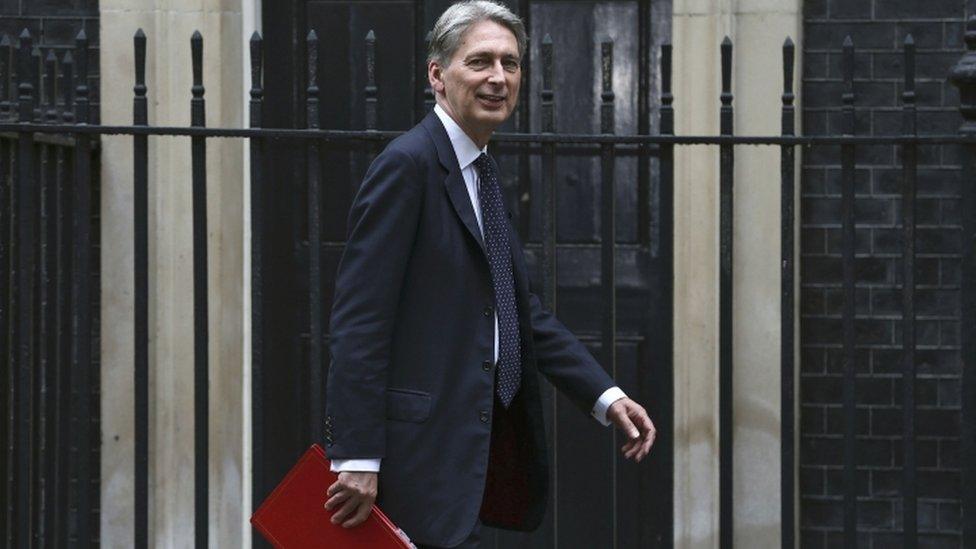
Chancellor Philip Hammond arriving for the meeting
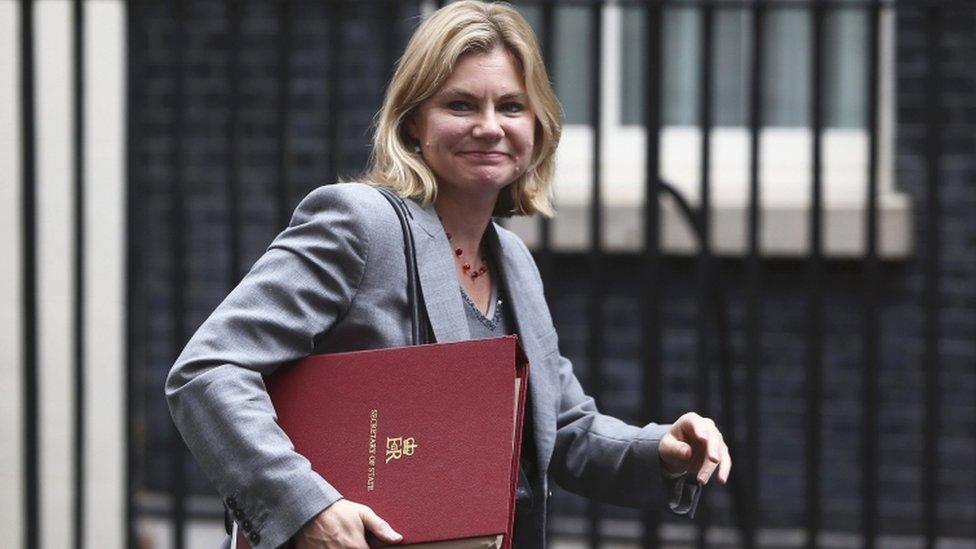
Education Secretary Justine Greening arriving
She added: "That is why we need a proper industrial strategy that focuses on improving productivity, rewarding hardworking people with higher wages and creating more opportunities for young people so that, whatever their background, they go as far as their talents will take them.
"We also need a plan to drive growth up and down the country - from rural areas to our great cities."
Hinkley delay
The meeting comes after the government unexpectedly postponed plans to build the first new UK nuclear plant in 20 years so the situation could be reviewed.
Contracts were to be signed last Friday after French firm EDF, which is financing most of the £18bn Hinkley Point project in Somerset, approved the funding at a board meeting. China is expected to fund one third of the project.
But Business Secretary Greg Clark has said the government will "consider carefully" before backing it.
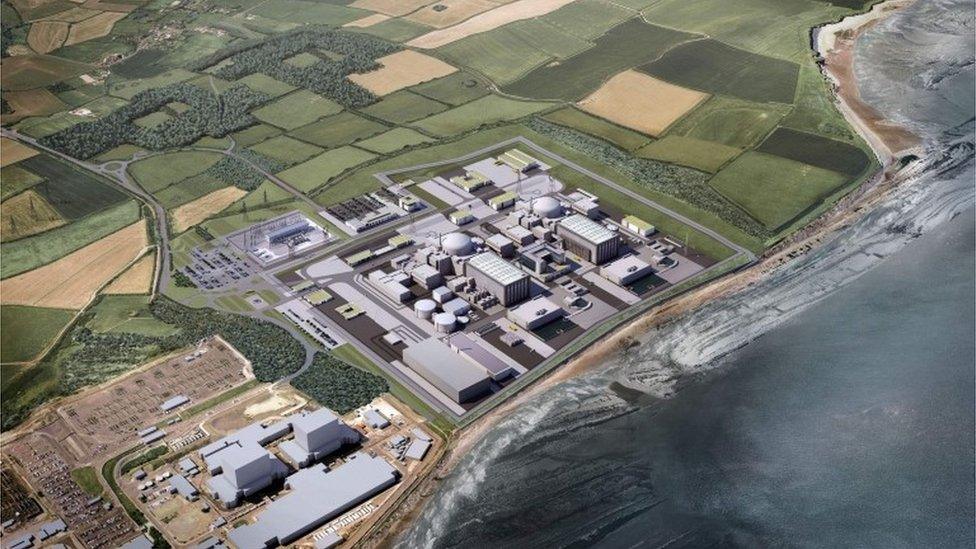
The government ordered a last-minute delay to finalising plans to build the Hinkley Point nuclear power plant project
Reports suggest Mrs May has national security concerns about China's role in the project, prompting China to say it will not tolerate "unwanted accusations" about its investments in the UK.
Former Foreign Secretary Lord Hague has defended Mrs May's right to look afresh at the project.
"While greater trade and investment with China is clearly beneficial for both countries and is to be encouraged, Theresa May is quite right to take the time necessary to evaluate the Chinese role in our nuclear power," he wrote in the Daily Telegraph, external.
And former Conservative deputy prime minister Lord Heseltine said Mrs May's decision to review Hinkley Point did not mean she was "anti-infrastructure".
"She as home secretary has not been that deeply involved in the detail. Now as prime minister she has a very different and much wider responsibility.
"She's fully entitled to ask those basic questions; that is not anti-infrastructure, it is pro-national security," he told BBC Radio 4's World at One.
The full list of attendees at Tuesday's committee included:
Prime Minister Theresa May
Chancellor of the Exchequer Philip Hammond
Business, Energy and Industrial Strategy Secretary Greg Clark
Work and Pensions Secretary Damian Green
Health Secretary Jeremy Hunt
Environment, Food and Rural Affairs Secretary Andrea Leadsom
Culture, Media and Sport Secretary Karen Bradley
International Trade Secretary Liam Fox
Education Secretary Justine Greening
Defence Secretary Michael Fallon
Communities and Local Government Secretary Sajid Javid
Transport Secretary Chris Grayling
- Published1 August 2016

- Published22 July 2016
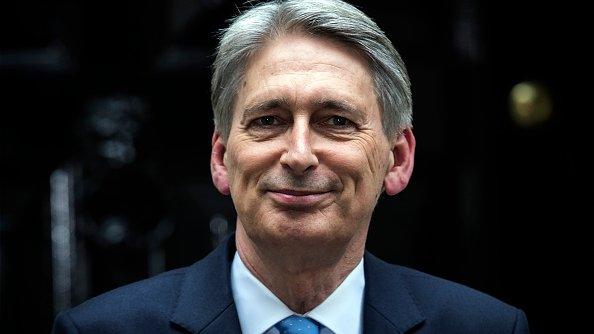
- Published13 July 2016
